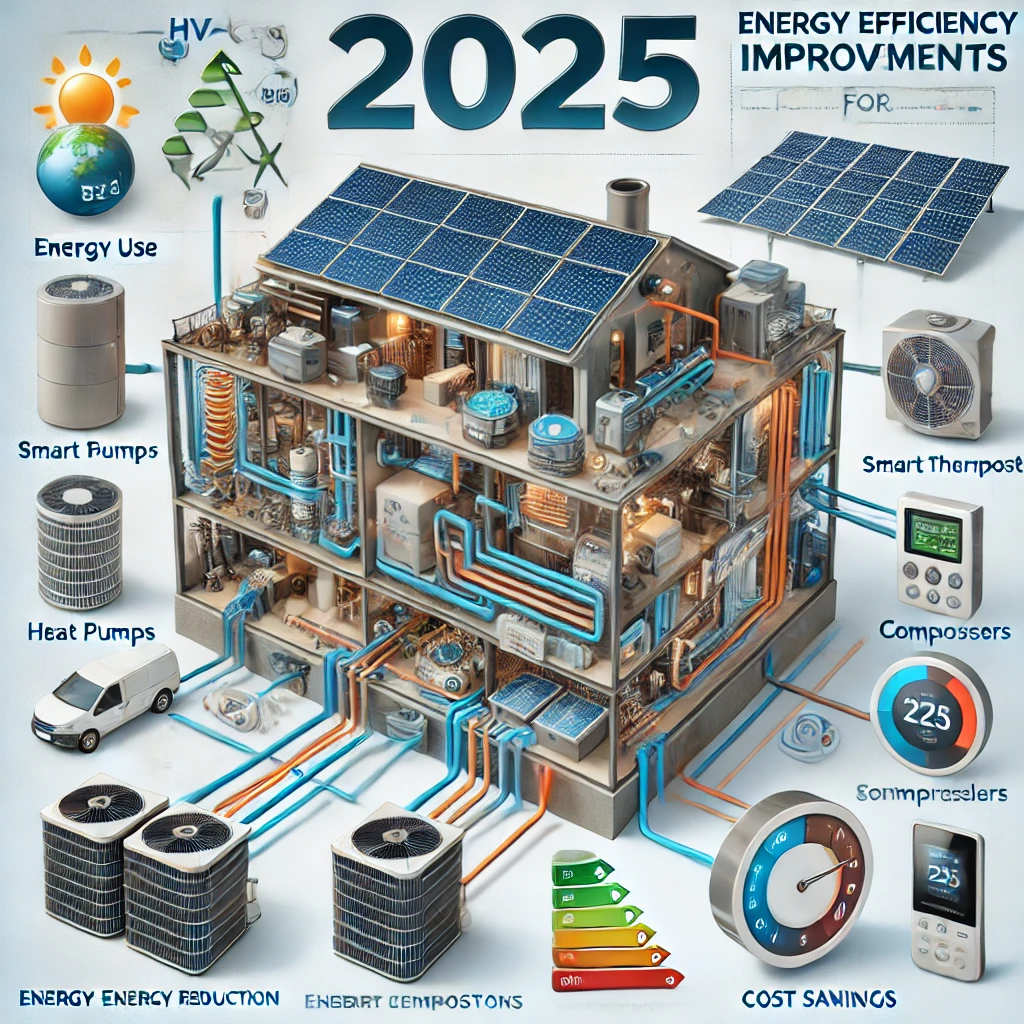The HVAC industry is on the brink of a major transformation. New technologies, a focus…

Regional HVAC Market Insights: Key Growth Areas
The regional HVAC market is undergoing significant growth, with demand varying across regions based on climate, urbanization, and sustainability initiatives. Contractors who understand the trends shaping the regional HVAC market—from green technology adoption in Europe to rapid urbanization in Asia-Pacific—can position themselves to seize emerging opportunities. This blog explores the key growth areas and strategies for contractors to thrive in the evolving regional HVAC market.
🎧 Listen to the Episode
🌟 Dive into our latest podcast episode where we uncover:
- ✨ Title: Regional HVAC Market Trends: Insights and Innovations
- ✨ Topics: An in-depth look at HVAC market trends and groundbreaking innovations driving the industry forward.
- ✨ Why Listen: Stay ahead of the curve with insights on HVAC technology and market drivers!
🎙️ Tune in below or on your favorite podcast platform! 🎙️
🎙️ Powered by iHeart Podcasts 📻
1. Southern U.S.: Booming Commercial Construction
The regional HVAC market in the Southern U.S. is expanding rapidly, thanks to robust commercial and residential construction activity in states like Texas, Florida, and Arizona. These areas benefit from urbanization and a strong economy, fueling HVAC demand.
Key Drivers of Growth:
- Commercial Projects: The rapid development of hospitals, shopping centers, schools, and office buildings creates a high demand for large-scale HVAC systems.
- Residential Expansion: The region’s population growth drives significant housing developments, making it a key area for residential HVAC installations.
- Warm Climate: The need for reliable cooling systems ensures year-round opportunities for HVAC contractors.
Why It’s Essential for Contractors:
Contractors operating in the Southern U.S. should focus on energy-efficient cooling solutions and scalable systems to meet the region’s increasing needs. By understanding the nuances of the regional HVAC market in these states, contractors can better position themselves to secure lucrative projects.

2. Western U.S.: Infrastructure and Sustainability Driving the Regional HVAC Market
In the Western U.S., infrastructure investments and sustainability initiatives drive HVAC trends. States like California and Washington lead in green building practices, making the region a hub for eco-friendly solutions.
Key Drivers of Growth:
- Infrastructure Upgrades: Major renovations in public buildings, airports, and transit hubs create demand for advanced HVAC installations.
- Sustainability Focus: California’s energy codes, like Title 24, require efficient HVAC systems for new construction and retrofits.
- Green Building Movement: Cities like Los Angeles and Seattle prioritize LEED-certified projects, driving innovation in HVAC systems and solutions.
Why It’s Essential for Contractors:
Contractors should emphasize green technologies and systems that align with environmental mandates. Staying informed about energy-efficiency incentives can help contractors thrive in the eco-conscious regional HVAC market of the West.

3. Northeast U.S.: Retrofitting Aging Infrastructure in the Regional HVAC Market
The demand for HVAC in the Northeast U.S. presents unique opportunities due to aging infrastructure and cold winters. Cities like New York and Boston require substantial HVAC retrofits to modernize old systems.
Key Drivers of Growth:
- Retrofits for Efficiency: The Northeast’s older buildings are retrofitted with energy-efficient HVAC systems to reduce energy costs and meet updated regulations.
- Urban Development: Ongoing residential high-rises and commercial property development further boost regional HVAC market demand.
- Heating Needs: Harsh winters increase the need for high-performance heating systems, making this a priority for contractors.
Why It’s Essential for Contractors:
Specializing in retrofitting and offering innovative HVAC solutions tailored to local needs can help contractors succeed in the Northeast’s regional HVAC market.

4. Canada: Sustainability and Growth in the Regional HVAC Market
The Canadian regional HVAC market is expanding steadily, driven by sustainability goals and infrastructure investments. Cold winters and green building initiatives ensure a continuous demand for innovative HVAC solutions.
Key Drivers of Growth:
- Public Investments: Government funding for housing and social infrastructure projects drives HVAC installations nationwide.
- Green Technologies: Canada’s focus on energy efficiency makes eco-friendly HVAC systems integral to the market.
- Extreme Climate: The country’s long, cold winters require durable and efficient heating solutions.
Why It’s Essential for Contractors:
Contractors should focus on energy-efficient systems, including heat pumps and hybrid systems, to cater to the demands of the Canadian regional HVAC market.

5. Europe: Decarbonization Leading the Regional HVAC Market
Europe’s regional HVAC market is at the forefront of decarbonization, driven by ambitious climate goals and innovative policies. The adoption of heat pumps and low-GWP refrigerants is transforming the market.
Key Drivers of Growth:
- Heat Pump Adoption: Policies like the EU’s REPowerEU Plan are accelerating the installation of heat pumps across Europe.
- Regulatory Frameworks: Strict standards on refrigerants are driving demand for eco-friendly alternatives.
- Sustainability Goals: Governments and businesses aim to achieve net-zero emissions, shaping the regional HVAC market in Europe.
Why It’s Essential for Contractors:
To remain competitive in Europe’s forward-thinking regional HVAC market, contractors should prioritize energy-efficient systems and stay ahead of regulatory changes.

6. Asia-Pacific: Urbanization and Large-Scale Projects
The Asia-Pacific HVAC sector is booming and is driven by rapid urbanization in China and India. This region offers significant growth opportunities for contractors.
Key Drivers of Growth:
- Urban Growth: Expanding cities demand extensive HVAC installations for residential and commercial developments.
- Government Support: Subsidies and incentives promote energy-efficient systems, further driving HVAC adoption.
- Diverse Climate Needs: This region requires versatile HVAC solutions for tropical and temperate climates.
Why It’s Essential for Contractors:
To succeed in the Asia-Pacific regional HVAC market, contractors should offer scalable systems and energy-efficient technologies that meet government standards and cater to urban demands.

How Contractors Can Leverage Regional HVAC Trends
1. Align Services with Regional Demands
Understanding the unique HVAC demands of each region allows contractors to tailor their services and offerings for maximum impact.
2. Leverage Incentives
Many regions offer incentives for installing energy-efficient HVAC systems. Promoting these benefits can help contractors attract clients and close sales.
3. Prioritize Scalable Solutions
Large-scale developments require scalable HVAC systems to adapt to diverse project sizes and requirements.
4. Stay Compliant with Regulations
Knowledge of local regulations ensures contractors stay competitive and compliant, especially in eco-conscious markets.
Join SendWork today and discover how it can help you stay ahead in the HVAC industry!
Try SendWork for Free
Final Thoughts
The regional HVAC market offers diverse growth opportunities shaped by local trends and regulations. By understanding and adapting to regional nuances, contractors can position themselves for success. Whether addressing aging infrastructure in the Northeast or implementing sustainable solutions in Europe, contractors who align their services with regional demands will thrive in the competitive HVAC industry.ds shaping the future of the market. Contractors who understand the unique needs of their target regions and offer tailored, energy-efficient solutions will position themselves as leaders in this dynamic field. Whether retrofitting systems in aging buildings or providing cutting-edge solutions for new construction, the opportunities are vast for those ready to adapt and innovate.
Additional Resources:
- U.S. HVAC Systems Market Analysis: This report provides comprehensive insights into the U.S. HVAC systems market, including regional estimates and trend analysis. Grand View Research
- Global HVAC Market Overview: Explore worldwide HVAC market statistics and facts, highlighting regional differences and market sizes. Statista
- North America HVAC Market Trends: Gain insights into the North American HVAC market, focusing on market size, growth projections, and key industry players. Expert Market Research
These resources offer valuable information to help contractors navigate and succeed in the evolving regional HVAC markets.



